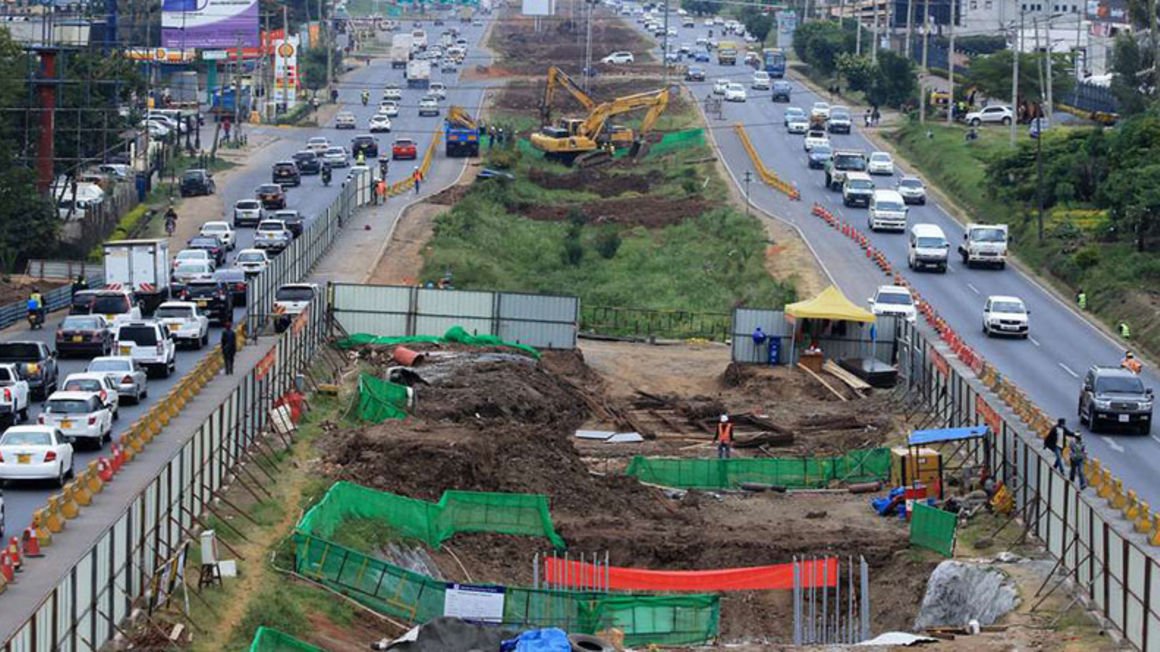Work in progress on Nairobi Expressway. FILE PHOTO | NMG The Chinese firm that will build and operate the Nairobi Expressway will earn an estimated Sh106.8 billion profit for the 27 years it will own the double-decker road.
China Road and Bridge Corporation (CRBC), which built the Sh474 billion Mombasa-Naivasha standard gauge rail (SGR), will earn $977 million (Sh106.8 billion) as dividend and other incomes from the $2,765 million (Sh302.4 billion) revenues that are expected from the mega road.
This means that CRBC through its local arm — Moja Expressway Company — will pocket an estimated Sh3.9 billion annually or 35 percent of revenues generated from toll fees charged on motorists who will use the 27.1km road.
Motorists using the road linking Mlolongo to the Nairobi-Nakuru highway via Jomo Kenyatta International Airport (JKIA) will pay between $1 (Sh109.4) and $15 (Sh1,641) depending on the size of the cars and distance travelled.
The disclosures were tabled in Parliament last week and put the Chinese firm’s earnings at 163 percent of the $599.5 million (Sh65.5 billion) estimated cost of building the road.
CRBC also earns billions of shillings from running SGR through its Kenya subsidiary Africa Star Operations.
At Sh3.9 billion, CRBC’s forecast annual earnings from the double-decker road dwarfs the profits of the majority of firms listed on the Nairobi Securities Exchange (NSE) — underlining the outsized cash the expressway will generate over the 27 years.
“Total cash flow generated from operation activities-mainly toll revenue-during the concession period is estimated at Sh302.491 billion ($2.765 billion),” James Macharia, the Transport Cabinet Secretary said in submissions to Parliament.
“The main purpose of the road is to decongest the section of the road from Mlolongo to James Gichuru by transferring an estimated 30 percent of traffic volume from the existing road to the new expressway.”
Toll fees were introduced in the late 1980s but were scrapped in the mid-90s in favour of the roads maintenance levy currently charged at Sh18 per litre of petrol and diesel.
The return of toll fees is the result of using private investments in State infrastructure to build roads, energy plants and housing with investors recouping their cash from charging user fees like toll.Kenya is seeking to maintain the pace of spending on new infrastructure with funding from private backers while reducing borrowings and budget deficit.High-capacity vehicles like transit lorries will pay between $5 (Sh547) and $15 (Sh1,641) to use the expressway depending on distance travelled on the […]
